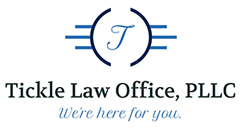If you face misdemeanor criminal charges in North Carolina, you may focus on the sentence imposed by a conviction but believe the situation ends when you pay fines or spend a short time in jail. However, it may surprise you to learn that might significantly impact other areas of your life. It could limit earning potential, living arrangements and financial standing.
According to the University of North Carolina School of Government, nearly 1.7 million North Carolina residents have a criminal record. A judge may impose punishments that include a fine and probation or jail time. However, civil consequences are separate from the criminal sentence and may occur because of a conviction.
Civil consequences
The backlash of a misdemeanor conviction could last for years, long after you complete the statutory requirements of your sentence. Depending on the details of your case, enforced conditions affecting your life may include one or more of the following:
- Limited residency options
- Registering your domicile
- Exclusion from government programs and contracts
- Restrictions related to child custody or adoption
If you are a lawyer, doctor or business owner, you may also have imposed career limits. They might prevent you from getting or maintaining professional or business licenses. Civil consequences result from the conviction, not the sentence. This means that they may impact you if you plead guilty and avoid jail time or pay a fine with probation.
Discretionary consequences
If you apply for a job, a potential employer may not hire you because of your criminal record. Landlords may deny you a lease for the same reason. These are discretionary consequences and are often not mentioned as part of the repercussions. Understanding the impact of a misdemeanor conviction before your court date is critical for protecting your future.

